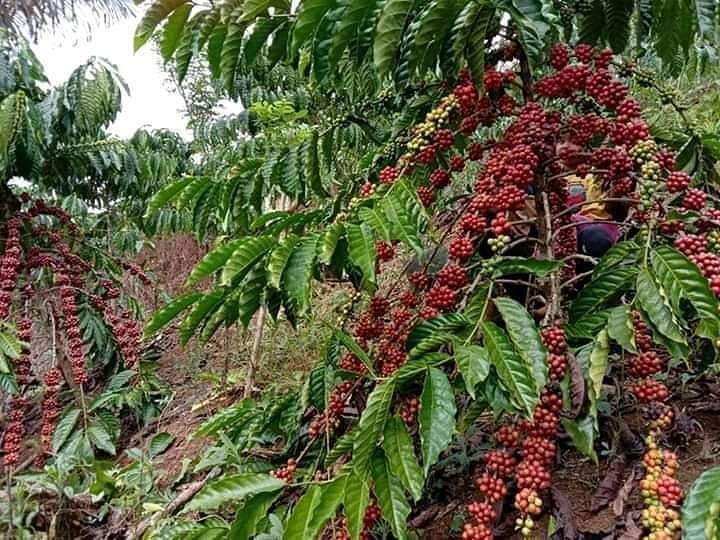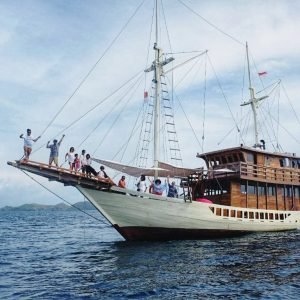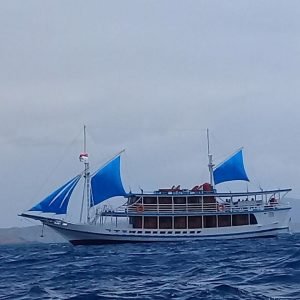Historical Roots of Coffee Cultivation in Flores
Coffee in Colol–The origins of coffee cultivation in East Manggarai, Flores, can be traced back to the early 18th century when the Dutch colonial rulers introduced coffee as a cash crop. This introduction marked a significant turning point in the agricultural practices of the region, as local farmers began to shift from subsistence farming to cash crop production. Initially, coffee was cultivated primarily in the mountainous areas of Flores, where the altitude and climate provided ideal conditions for its growth.
As coffee gained popularity in the international market, various planting techniques were introduced, stemming from the knowledge brought by colonial methods and adapted to local practices. Traditional agricultural methods, honed over generations, played a crucial role in shaping the cultivation of coffee in East Manggarai. Local farmers began to embrace innovative growing techniques, such as intercropping with traditional crops, which not only improved soil fertility but also drew biodiversity to their farms. This blend of colonial influence and indigenous knowledge established the foundation of what would become a unique coffee culture.
Moreover, the community rituals associated with coffee production further enriched the historical context of coffee cultivation in Flores. Local traditions often intertwine the act of coffee planting and harvesting with cultural and familial bonds, emphasizing collective effort and community spirit. Festivals celebrating the annual coffee harvest are common, reflecting the significant role that coffee plays not only as an economic commodity but also as a symbol of cultural identity. Today, the coffee produced in East Manggarai stands as a testament to the resilience and adaptability of local farmers, acting as a bridge between the rich traditions of the past and the evolving demands of the future market.
Unique Varieties and Flavor Profiles of East Manggarai Coffee
East Manggarai, located on the island of Flores in Indonesia, is renowned for producing exceptional coffee varieties, each boasting distinct flavor profiles that reflect the region’s unique agricultural conditions. The interplay between the area’s high altitudes, fertile volcanic soils, and tropical climate results in coffee beans that are rich in flavor and aroma. Among the most notable varieties cultivated in East Manggarai are Arabica and Robusta, with the former being particularly esteemed for its sweetness and complexity.
The Arabica coffee from East Manggarai is often characterized by its bright acidity and floral notes, accompanied by a medium body that delivers a smooth and balanced cup. Many local farmers have reported that these beans exhibit unique tasting profiles due to the region’s microclimates. For instance, growers from different villages have highlighted that variations in elevation can influence the flavor; higher altitudes often yield beans with pronounced berry or citrus undertones, while lower-growing areas may produce coffee with a deeper, chocolatey aroma.
Conversely, the Robusta coffee typically found in East Manggarai is recognized for its bold and strong flavors, with a more earthy, nutty profile. Its higher caffeine content not only gives it a potent taste but also contributes to a fuller body. Interviews with local farmers reveal that the traditional processing methods, such as wet or natural fermentation, also play an instrumental role in defining the final flavor characteristics of the coffee, influencing factors like sweetness and acidity.
As the region continues to gain recognition in the global coffee market, the dedication of local farmers to preserving these unique varieties enhances the authenticity and cultural significance of East Manggarai coffee. The combination of environmental factors and artisanal farming practices leads to a rich tapestry of flavors, ensuring that coffee enthusiasts fully appreciate the remarkable offerings of East Manggarai.
Cultural Significance of Coffee in East Manggarai
Coffee in East Manggarai holds a profound cultural significance that extends beyond mere consumption; it serves as a pivotal element in the daily lives of the local community. Traditionally, coffee has been an integral part of social gatherings, rituals, and ceremonies, symbolizing hospitality and unity among the people. In many instances, the act of serving coffee is imbued with meaning, where it acts as an icebreaker and a means of forging deeper connections among friends and family.
The preparation and sharing of coffee are steeped in tradition. In East Manggarai, it is common for families to gather in the evenings to enjoy a cup of locally grown coffee while sharing stories and experiences. This ritual not only enhances familial bonds but also fosters community ties as neighbors often join in these gatherings. Moreover, during significant ceremonies, such as weddings and local festivals, coffee plays a crucial role, often being offered to guests as a gesture of goodwill and respect.
Economically, coffee is not only a source of income for many households in East Manggarai but also a catalyst for local development. The cultivation of coffee supports numerous families, contributing to the region’s economy and enabling communities to thrive. As coffee is traded and sold, it becomes a unifying force, bringing individuals together both in economic transactions and through collective efforts towards quality production. The shared pride in their quality coffee, recognized for its unique flavor profile, enhances community identity, serving as a reminder of their rich heritage.
In career advancements and sustainability initiatives, coffee farmers are increasingly participating in cooperative movements that empower them to assert control over pricing and promote fair trade practices. This further solidifies coffee’s role in fostering community strength and cooperation, ensuring that the traditions surrounding this beloved beverage endure for generations to come.
The Future of Coffee in East Manggarai: Challenges and Opportunities
The coffee industry in East Manggarai stands at a critical juncture, confronting various challenges that could impede growth while simultaneously presenting numerous opportunities that may enhance its prominence in the global coffee scene. One of the primary challenges arises from climate change, which poses a significant threat to coffee cultivation. Rising temperatures and unpredictable rainfall patterns can adversely affect the yield and quality of coffee beans. To mitigate these risks, local growers must adapt their agricultural practices and possibly consider cultivating more resilient coffee varieties.
Market fluctuations also present a considerable challenge for East Manggarai coffee farmers. The global coffee market is often volatile, influenced by factors such as supply and demand, economic circumstances in consuming nations, and geopolitical events. Consequently, East Manggarai coffee producers may face uncertainty regarding pricing and distribution. Developing strong cooperative networks among farmers can provide them with a unified front to negotiate better prices and ensure more stable incomes.
On a more hopeful note, the rising interest in specialty coffee presents an exciting opportunity for coffee growers in the region. With consumers increasingly seeking unique flavor profiles and ethically sourced products, East Manggarai’s indigenous coffee can appeal to a niche market willing to pay a premium. Moreover, enhancing the quality of processing methods can create a distinct identity for East Manggarai coffee, generating greater demand on both local and international platforms.
Potential government support and the increasing interest in fair trade practices also offer robust avenues for growth. By fostering partnerships between local growers and international organizations, there could be improvements in production techniques, access to financing, and market insights. This collaborative approach may not only bolster the livelihoods of local farmers but also elevate East Manggarai coffee as a noteworthy contender on the world stage. As these challenges are navigated and opportunities leveraged, the future of East Manggarai coffee is poised for success.








